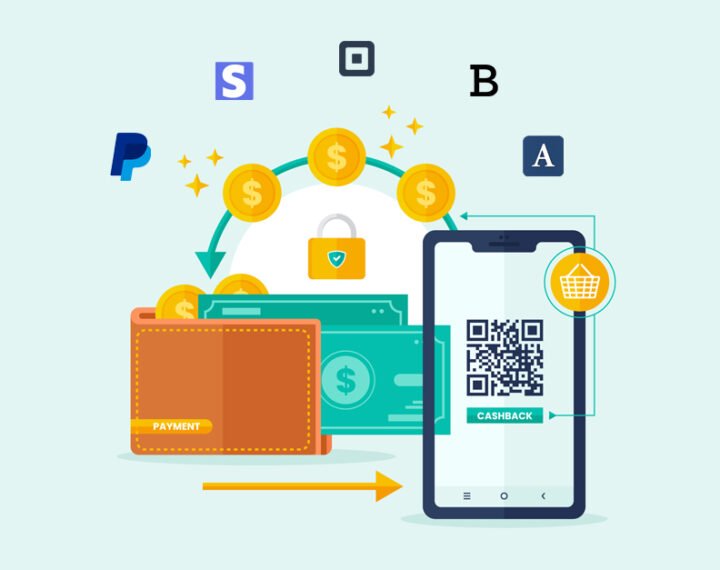
The Evolution of Payment Methods and Fintech Solutions
In today’s fast -paced world, offering diverse and secure payments methods is essential for both retail and e-commerce business to stay competitive and meet consumer expectations. Whether in a brick-and-mortar store or online market place, customers are looking for a seamless, convenient and safe way to complete their transactions. As digital payment options continue to evolve, businesses are presented with a range of methods that can enhance customer experience, increase sales, and streamline financial operations. There are numerous payment solutions available, but it is important for businesses to understand the different payment methods and adapt to modern shopping habits.
According to a report from Research And Markets, the e-commerce payment market is expected to grow from US$ 4.08 trillion in 2023 to US$ 12.90 trillion by 2032, with a strong Compound Annual Growth Rate (CAGR) of 13.65% from 2024 to 2032.
The global e-commerce payment market is being propelled by a rise in online shopping, advancements in payment technology and the expansion of digital financial services. The global retail payment market is driven by retailers offering various payment methods to their customers, the rise of e-commerce, advancements in payment technology, the shift towards cashless societies, and the growth of fintech and cross- border payments.
On a global scale, the most popular e-commerce and retail payment methods today include,
- Credit and debit cards
- Bank Transfers
- Cash On Delivery
- Mobile Payments
- Point of sale financing
- Cross-border payments
- Payment gateways like, Pay Pal, Stripe, Amazon Pay, Razor Pay, Checkout.com and Sageway.
These payment methods provide flexibility to customers and also help streamline transactions for business. However, as the digital payment landscape evolves, business are turning to fintech solutions to further enhance payment methods and improve the customer experience.
Fintech solutions are transforming retail and e-commerce payments through innovations like mobile wallets, Buy Now Pay Later, and contactless payments. These advancements help e-commerce and retail businesses streamline financial operations, enhance customer experiences, and boost cross-border sales, through methods like UPI, E-commerce payment gateways, Embedded finance and QR code payments.
Fintech solutions are assisting retailers and e-commerce businesses by Improving customer experiences, reducing costs, enhancing security, data analytics, increasing accessibility and global expansion.
Examples of fintech companies in the retail and e-commerce business are;
- Payment Processors- Stripe, PayPal and Adyen
- Buy Now Pay Later providers- After pay and Affirm
- Mobile Wallet providers- Paytm, Google Pay and Apple Pay
- E-commerce platform- Shopify and Big Commerce
Retail and e-commerce businesses encounter regulatory challenges related to payments, such as consumer protection, data privacy, security requirements like PCI DSS, and tax compliance. Failing to address these issues can result in fines and harm to their reputation.
The Significant regulatory concerns include;
- Consumer Protection
- Data Privacy- E-commerce businesses are required to follow data protection regulations such as GDPR and CCPA, making sure customer data is managed responsibly and transparently. This includes obtaining consent and granting customers rights to access and delete their data.
- Consumer Rights-companies must comply with consumer protection laws, which involve providing accurate product descriptions, fair pricing, timely delivery and clear return policies.
- Product Liability– E-commerce businesses are accountable for the safety and quality of the products they offer, and must be ready to address any product defects or potential liability.
- Payment Security and compliance
- PCI DSS Compliance – Businesses that process, store, or transmit cardholder information must adhere to the Payment Card Industry Data Security Standard (PCI DSS) to safeguard sensitive data and prevent fraud.
- Fraud Prevention
- Cybersecurity
- Charge backs and disputes
- Financial and Tax Regulations
- Taxes – E-commerce businesses must adhere to tax laws, which involve collecting and remitting sales tax, as well as complying with any other relevant taxes.
- Anti-Money Laundering (AML) – companies must follow AML regulations to ensure their platforms are not used for illegal activities.
- Cross-border Transactions- cross -border transactions present challenges due to custom duties and tariffs, with the complexity of managing varying tax regulations across different countries.
- Intellectual Property
- Copyright Infringement
- Counterfeit products
- Legal and contractual issues
- Terms and Conditions
- Contract Law
- Dispute Resolution
If e-commerce and retail companies do not adhere to regulatory concerns, they may face financial and legal hurdles, which can dent their brand reputation or even lead to a shutdown, fines and penalties, legal action, damage to their reputation, and a loss of business.
In conclusion, as the e-commerce and retail sectors continue to evolve, embracing diverse and secure payment method is essential to remain competitive and meet consumer expectations. With the rapid growth of digital payments and the rise of fintech solutions, business must adapt to modern payments trends while navigating complex regulatory concerns. Compliance with data privacy, payment security, tax laws, and consumer protection is crucial to avoid legal repercussions and safeguard their reputation. By understanding these challenges and leveraging innovative payment solutions, companies can enhance customer experiences, drive growth, and ensure long-term success in the global marketplace.








